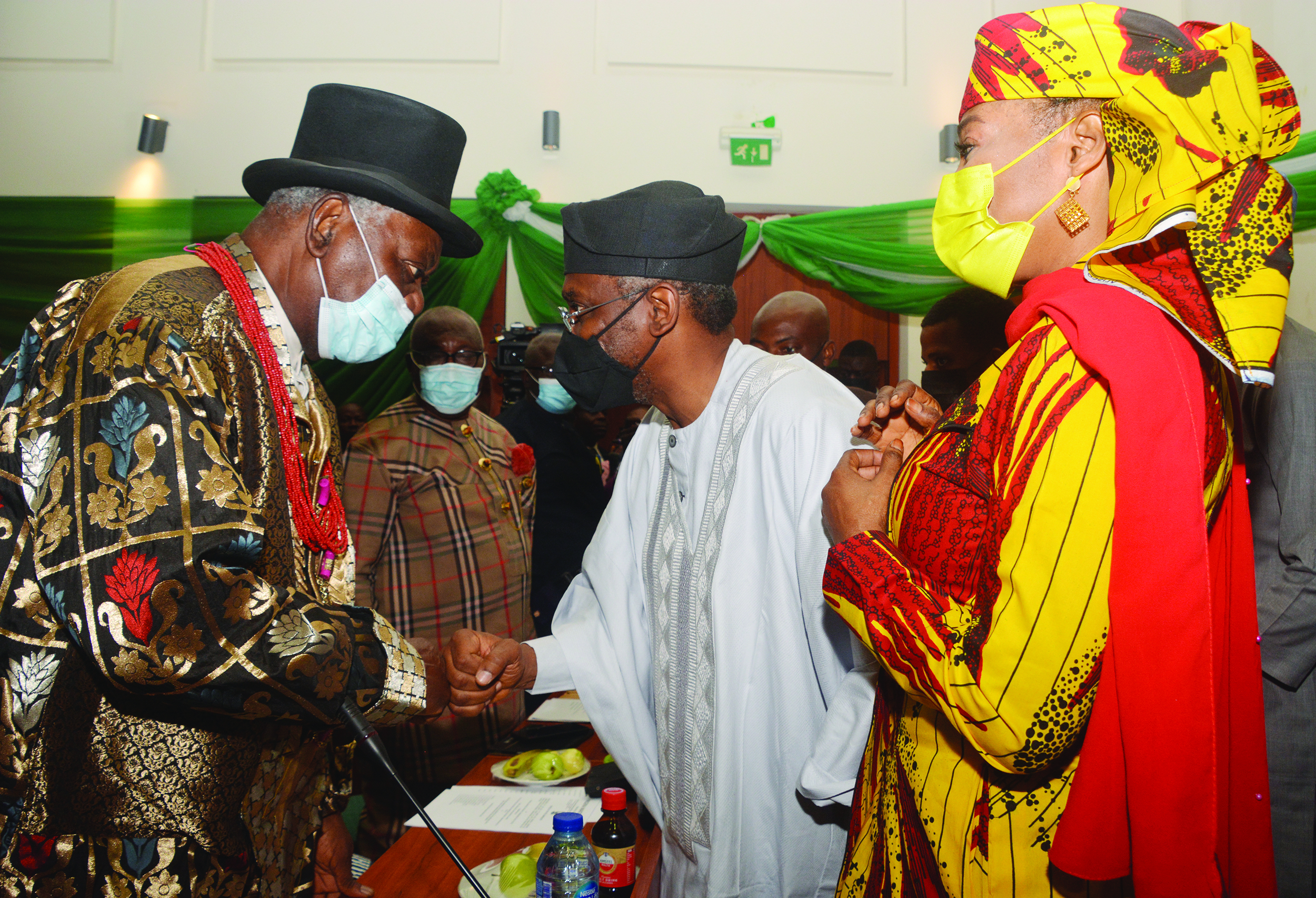Editorial
Nigeria’s New Terrorism Ranking

Following successes in the battle against Boko Haram insurgents, Nigeria placed sixth in the latest Global Terrorism Index (GTI). The country dropped two places from fourth, a position it has occupied since 2017. This is a positive development and a token of progress in the anti-insurgence war.
The GTI, published by an independent and non-profit think tank, the Institute for Economics & Peace (IEP), signalled that Nigeria, Syria, and Somalia were the only nations, among the 10 most impaired by terrorism, to get an upgraded score from 2020 to 2021. The report found that the number of terrorism-related deaths in Nigeria had diminished. It attributed this to the death of the Boko Haram leader, Abubakar Shekau, and the Federal Government’s efforts to vanquish the group.
“Total deaths from terrorism in Nigeria fell to 448 in 2021, the lowest level since 2011. Terror-related casualties dropped by almost half compared with the previous year. However, the number of terrorist attacks increased by 49 per cent between 2020 and 2021. Thirty-six per cent of attacks are claimed by ISWA, Boko Haram being responsible for eight per cent and 44 per cent not attributed to any group.
“In 2020, ISWA became the deadliest terrorist group in Nigeria. The decline of Boko Haram continued into 2021, with Boko Haram responsible for only 69 deaths, a decrease of 77 per cent from the previous year. This is the lowest number of deaths by the group for a decade. Boko Haram’s decline has resulted in a substantial improvement in terrorism in Borno State, which experienced a decrease of 71 per cent in terrorism deaths when compared with the previous year,” the report said in part.
In addition, the Terrorism Index figured out that law enforcement agents, including police and prison officers, overtook the military and civilians as the most targeted group in 2021. According to the report, these raids were for the most part impelled by a recrudescence of confrontations between security agents and separatist groups, such as the Indigenous People Of Biafra (IPOB).
GTI is an instrument that has been formulated to help governments comprehend whether and how they are making progress in containment of insurgents or animus to the state or communities. The index derives its scores by gauging the direct and indirect effects of terrorism. These include the number of lives lost, injuries, property damaged, business impacts, and psychological impacts on affected communities.
The Boko Haram uprising reached its peak, destabilising communities from the North-East to the capital, Abuja. This has made life in the entire North-Eastern region worse. Boko Haram not only booby-trapped the political status of the area, but also affected the economic and social activities of the population.
What the GTI report hints at is that the country is progressively retreating from the lamentable situation that has earned it a global negative perception as a nation overwhelmed with terror. And to steer it completely from the parlous course, the Federal Government must come to action and address all the indicators used to measure and define the country as one of the most hazardous places on earth.
For years, many Western countries, especially the United Kingdom and the United States, have issued travel advisories that depict dark images of our country. With previous reports on the Terrorism Index, Nigeria steadily found it difficult to attract foreign investments and tourists because of its poor security rating. The current rating will in actual fact soften these measures, stimulate tourism and investment.
The escalation in attacks on local farmers is already touching the country’s food reserves. The surge in insecurity has brought about stocks falling below 30,000 metric tonnes, which is a segment of what the country of more than 200 million people needs. It also harms the education of hundreds of thousands of children who do not have access to school.
Given the favourable disclosure of the GTI, the government must not yield in the war against terrorism because the insurgency is a saddle on the country’s economy. Its toll is huge and unsustainable. Thousands of lives were lost to this enterprise while millions of people fled their homes and farms, as well as economic activities were severely affected by safety concerns.
Efforts should be made to sustain this rating. The Nigerian military must bolster its intelligence-gathering capabilities, operational reach and general momentum. They need to co-operate with their neighbours. Undoubtedly, recent military achievements speak volumes about renewable involvement in the war against the insurgency. The basic principles of professionalism, respect for human rights and rules of engagement should be observed.
In all, the Terrorism Index that classifies our country positively should be another wake-up call for the authorities to deal with the rising insecurity in Nigeria. The government at the centre should operate an open door system to spur all well-meaning and patriotic citizens to pitch in their contributions towards ensuring that insecurity is put to long-lasting rest.
Editorial
Sustaining OBALGA’s Ban On Street Trading

Editorial
AFCON ’25: Bravo, Super Eagles, But…

Editorial
Fubara: Celebrating A Leader At 51

-

 Politics2 days ago
Politics2 days agoAPC Releases Adjusted Timetable For Nationwide Congresses, Convention
-

 Sports5 days ago
Sports5 days agoHammers Beat Burnley To Boost Survival Chances
-

 Business2 days ago
Business2 days agoCustoms Seek Support To Curb Smuggling In Ogun
-
News1 day ago
Police Bust Kidnapping Syndicate In PH
-
Sports1 day ago
DG NIS Wants NSC Board Constituted, Seeks Increased In Funding
-
Sports1 day ago
NSC Disburses N200m Training Grants To 26 Athletes
-
Sports2 days ago
Falcon Players Prepare For Title Defense
-

 Sports1 day ago
Sports1 day agoSWAN Rivers Set-up Five Functional Committees

